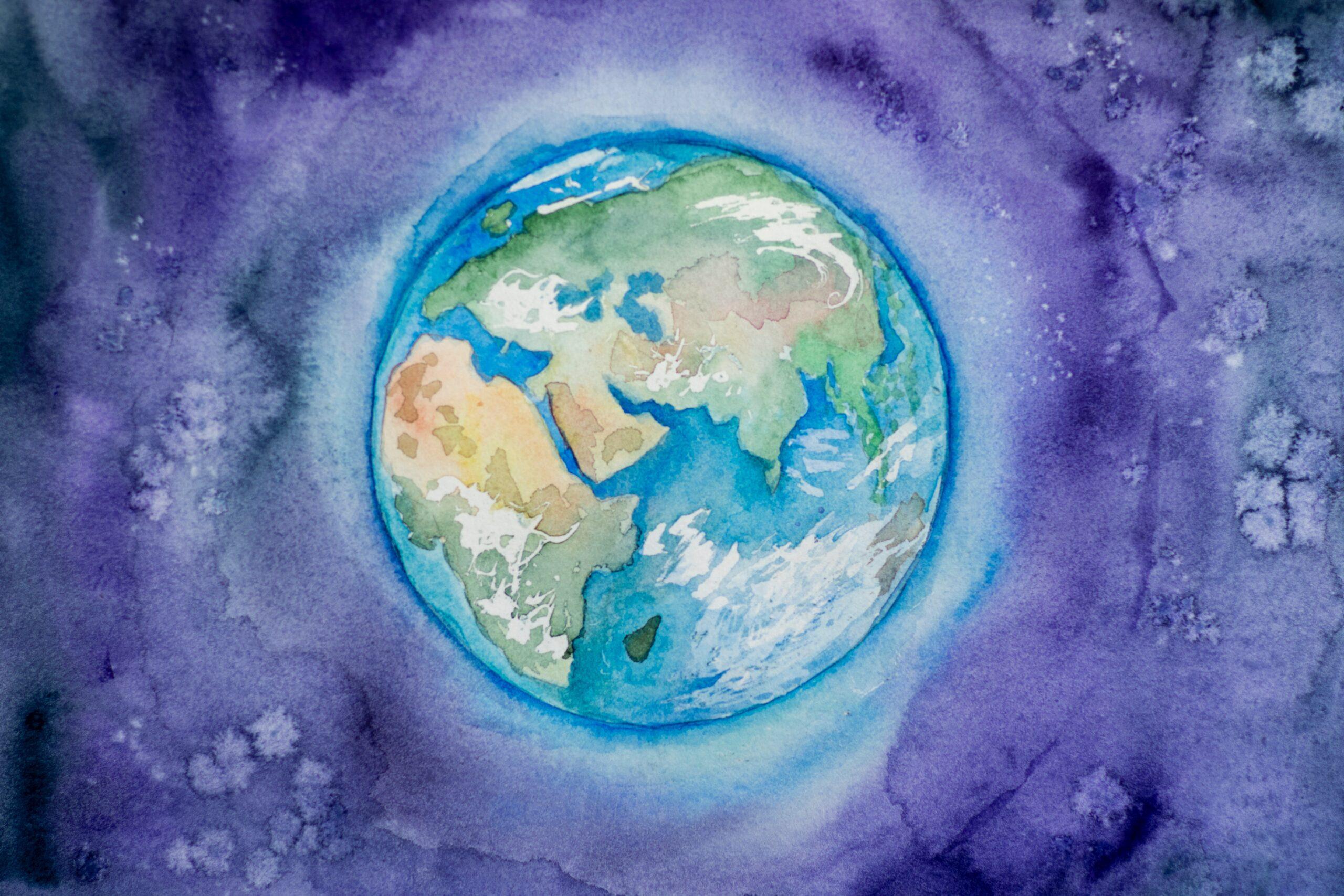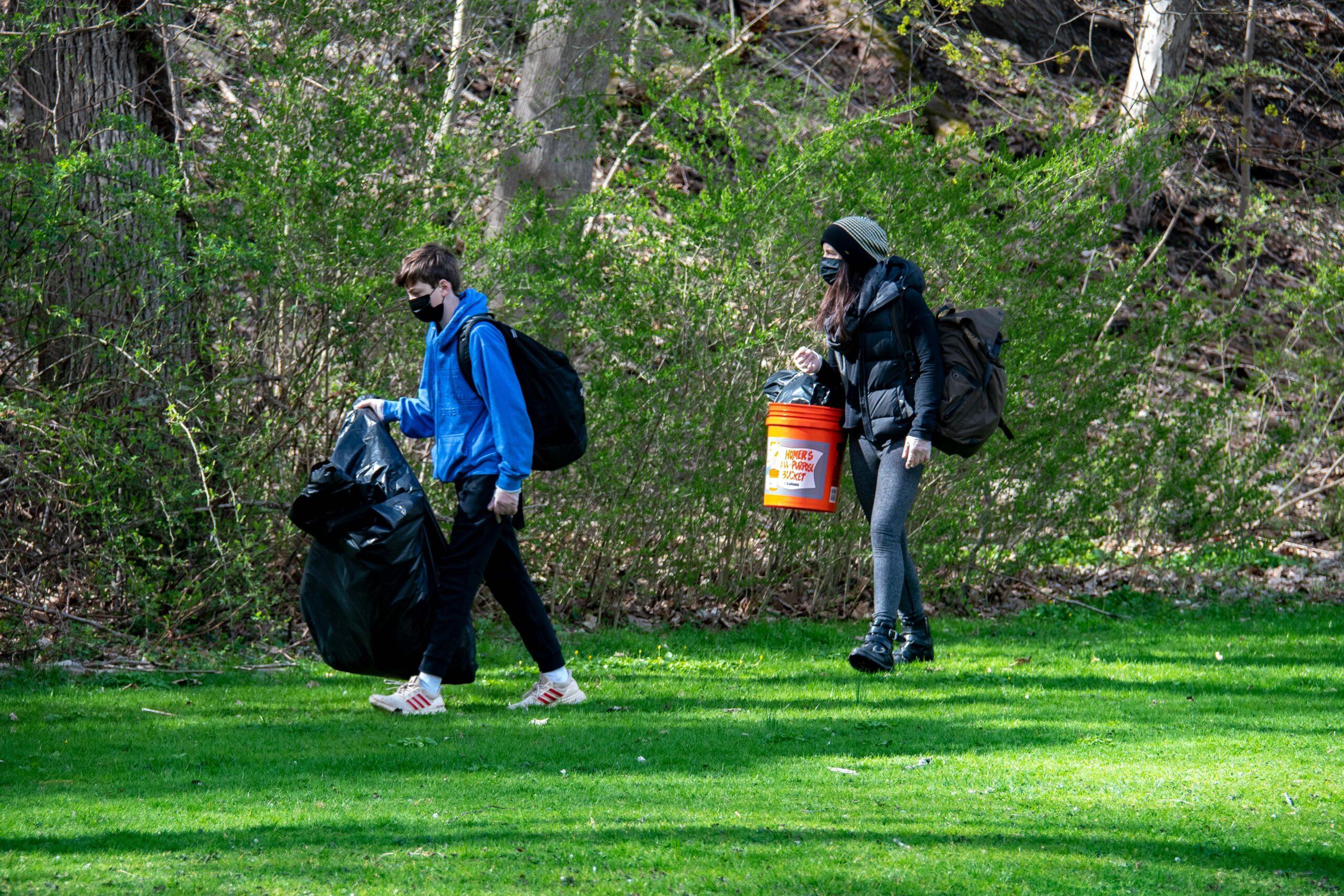While April brings Earth Day and a heightened awareness about being eco-friendly, teaching the next generation to be good stewards of the environment is one of the most important lessons we as parents can share year- round. As the mother of two small children, I feel an obligation to raise my kids with a strong sense of responsibility for the Earth and its preservation. Besides, passing on these sophisticated concepts can be easy and enjoyable if you approach the task in a way that’s entertaining while being informative.
Getting children involved early in the campaign to protect our planet impresses upon young minds how important it is to conserve. A particularly good way to do this is to take your children on the weekly trash run. Actually seeing the copious amounts of trash that people throw away cements the idea that the family needs to make every effort possible to reduce, reuse and recycle.
A fun way to impart the values of conservation to the young members of your family is to get them to decorate your recycling bins however children fancy. Also place the bins at the children’s level so they can actively participate in the family’s recycling routine. You can even name a child Recycling Captain of the house and make the child responsible for ensuring the rest of the family is adhering to the rules of recycling.
In the warmer months, the backyard is a veritable eco-system teeming with life. Balmy days and nights offer the perfect opportunity to appreciate nature with your children. A rite of passage for generations, catching lightning bugs is an amusing activity that permits children to connect with the small creatures of our world. Lightning bugs are cool to watch and not nearly as creepy or crawly as some of the other bugs found lurking under rocks or nesting under rafters.
City dwellers don’t have to miss out on the bug fun; they can watch the wondrous transformation of a caterpillar to a butterfly or a tadpole to a frog with ready-made kits. If your kids learn to appreciate Earth’s smallest creatures, chances are that kids will want to find ways to protect them.
Another great project to get kids to understand the importance of conserving is to grow food. Growing a vegetable garden that encourages the are active participation of your kids involves nothing more than a small patch of land or even a container. Gardening also enables the family to make use of kitchen scraps that would otherwise end up in a landfill. Kids learn that even those uneaten lima beans have a purpose other than serving as the dog’s after-dinner snack. And starting an under-the-counter compost bin or a backyard heap demonstrates to your children that your family makes a concerted effort to reuse whatever can be reused.
Some opportunities for connecting your children with recycling are as close as their closets. Large sections of our landfills are clogged with clothing. Instead of throwing out clothes that have been outgrown, each new season have children go through their closets to handpick items they can no longer wear. See if anyone in the family could use the hand-me-downs and create a pile to bring to Good Will, the Salvation Army and the like. Escort your children with their gently worn clothes to distributors to donate the items. This confirms the importance of reusing and gives kids a lesson in charitable giving and civic responsibility.
Teaching civic responsibility to an older child who always seems plugged in and is at times unwilling to listen to you can seem like a daunting task. To inspire someone in this tech-savvy generation to reconnect with the environment, have the kid assess the electronics in the house. In 2005, the EPA issued a study stating that unwanted electronics accounted for 2 million tons of waste in America’s landfills. Used electronics like cell phones, handheld devices and computers can be recycled. Encourage kids to research where to find a local electronic recycling center and have them ask friends and family members to donate to the recycling campaign. The benefit is two-fold: Your child gets to feel good about keeping dangerous electronic waste out of landfills while doing his or her part to save the planet.
We are entering a new age, an age where people are becoming conscious of their actions and how those actions affect the world. Helping your children realize their place in this new world is one of the most important lessons you can impart. Take it slow and make it fun. Your world will thank you.




